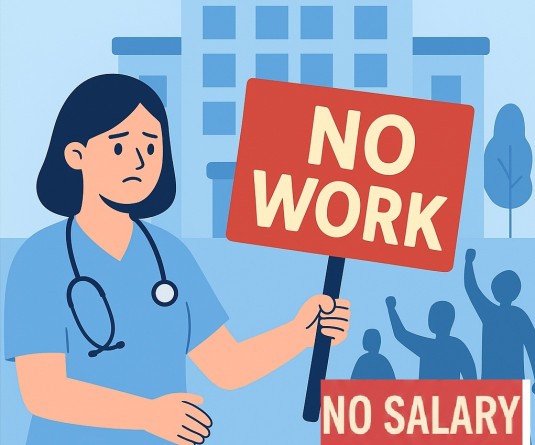
DIMAPUR, NOVEMBER 20 (MExN): The Central Nagaland Tribes Council (CNTC) has opposed the move of the Nagaland State Government to implement the 33 percent women reservation in Urban Local Bodies.
A press note from the CNTC termed this as a move which “infringes upon the Naga customary law and rights enshrined in the Article 371A.” It stated that the resentment and opposition by the tribal bodies of Nagaland must be respected by the government.
Nagas, the CNTC stated “have always treated women with reverence and a high regard in every sphere and aspect of life and so reservation is not at all necessary.” “Since time immemorial, women have been held in highest esteem in our Naga society. They are always free to compete with man in any fields and in many aspects too, they are doing better but reservation policy is not required at all in our state,” it added.
Describing the series of events regarding the reservation issue since 2001, the CNTC lamented that the present government has “taken a complete U-turn and has passed a cabinet decision to hold election in the local urban bodies with 33% women reservation.” “This was in utter contrast to the Assembly’s resolution passed on 22nd September, 2012. Surprisingly, TR Zeliang, who headed the Select Committee and who vociferously voiced against the women reservation in the Legislative Assembly on 20th March, 2012 suddenly became a staunch advocate of women cause now which is contravening their own decision,” it said.
Following the cabinet decision, the CNTC observed that the issue “seems to be getting more and more complex.” It pointed out that till August 10 2016, the bond of contention in this issue was whether 33% women reservation in the local urban bodies violates the Naga customary rights and whether it contravenes with the provisions in Article 371A. However, it stated that after the cabinet decision, a new problem as to whether the cabinet decision can supersede the Assembly’s resolution has been added. “Even legal experts opine that the cabinet decision of 2016 cannot supersede the Assembly’s resolution of 2012,” the CNTC claimed.
It meanwhile pointed out that various sections under the Municipal Act gives provisions to levy tax on land, buildings etc and section 23A infringes on Article 371A. It demanded that section 23A be repealed first in the Nagaland Legislative Assembly. “The amendment is necessitated in accordance to stand state government to preserve constitutional implementation referred to Article 371A.These issues need wider, proper and lengthier deliberations and cannot be rushed otherwise it would result in eroding the principles and trample upon the tribal customary laws and practices that were welded to Article 371A,” it added.
Meanwhile, the CNTC also questioned the state government on the Rongmei tribe recognition issue and asked whether the government is “really serious about the sentiment of indigenous tribes of Nagaland.” “If so, it has been nearly two months by now, since it said it has appointed a cabinet sub-committee to resolve the issue. But it has now become all silent without any visible stride to address the issue,” it lamented.
Regarding the PIL against the NP&NG Rules and Regulation, the CNTC stated that it fully supports the Lotha Hoho. “No body, be it governmental or non-governmental, has the right to impose any policy which is against the will and wishes of the people,” it said, and asked the government to redraft the ground modalities and procedures on the Oil and Natural Gas drilling rights.
“The state government should reset the terms and conditions at the earliest possible time which will benefit the Lothas who are the real landowners in particular and Nagas of Nagaland in general without engaging in dirty politics which will only distance them away from the people,” the CNTC said.
On the Foothill Road, it asked the Chief Minister and the Minister concerned to uphold the assurance made to complete the road by January 2017. The foothill road has become a great necessity not only for socio-economic development for the region “but for both safety and security reasons against continuous harassment for commuters through the state of Assam,” it said.






